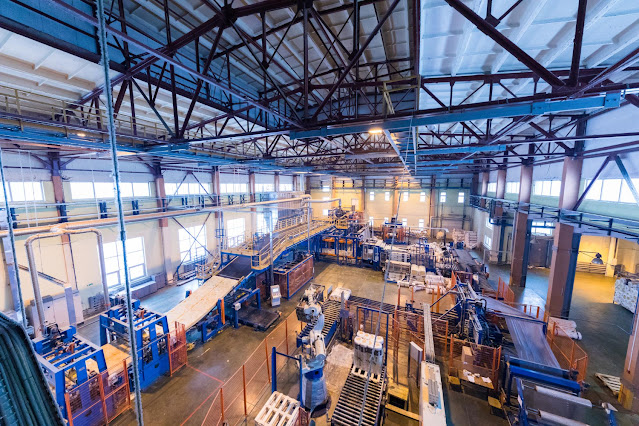Introduction to RPA in Manufacturing
In the modern landscape of manufacturing, the integration of Robotics Process Automation (RPA) has redefined operational efficiency and productivity. RPA, a technology that enables the configuration of software robots to automate repetitive tasks, holds immense potential for the manufacturing sector. Its application transcends the traditional boundaries of automation by facilitating the execution of intricate processes and workflows with unparalleled precision and speed.
Enhancing Operational Efficiency through RPA Implementation
Streamlined Production Processes
The deployment of RPA in manufacturing operations revolutionizes routine tasks such as data entry, inventory management, and quality control. By automating these processes, manufacturers experience a drastic reduction in error rates and operational costs. RPA streamlines workflows, ensuring seamless coordination between various departments, ultimately leading to accelerated production timelines and increased output consistency.
Improved Quality Control and Compliance
Inventory Management and Supply Chain Optimization
Efficient inventory management and optimized supply chains are pivotal for sustained success in manufacturing. RPA's capability to monitor stock levels, forecast demand, and automate procurement processes optimizes inventory management. By synchronizing supply chain operations, RPA minimizes delays, enhances reliability, and mitigates risks associated with inventory shortages or excess.
Advantages of RPA in Manufacturing
Increased Accuracy and Speed
The precision and swiftness exhibited by RPA significantly surpass human capabilities. These software robots perform tasks with utmost accuracy, minimizing errors and enhancing operational speed. This results in accelerated production cycles and quicker response times, ultimately contributing to a competitive edge in the market.
Cost-Efficiency and Resource Optimization
RPA implementation drives cost-efficiency by reducing labor-intensive tasks and reallocating human resources to more strategic initiatives. The optimized utilization of resources ensures maximum output while minimizing operational expenses, thereby bolstering profitability.
Scalability and Adaptability
The scalability of RPA solutions empowers manufacturers to scale operations seamlessly. Whether it's accommodating fluctuating demands or integrating with evolving technologies, RPA's adaptability ensures sustained efficiency in a dynamic manufacturing landscape.
Integrating RPA for Future Success
Strategic Implementation Roadmap
Successful integration of RPA necessitates a comprehensive implementation roadmap. This involves identifying key processes for automation, selecting appropriate RPA tools, and establishing robust governance and change management protocols. A phased approach towards implementation ensures a smooth transition and maximizes the benefits of RPA adoption.
Training and Upskilling
Continuous Evaluation and Optimization
Continuous evaluation of RPA systems is crucial to ascertain their efficacy and relevance. By collecting and analyzing performance metrics, manufacturers can identify areas for optimization, ensuring that the RPA systems evolve in tandem with the evolving business needs.
Conclusion
The integration of Robotics Process Automation (RPA) within the manufacturing industry represents a paradigm shift towards enhanced efficiency, reliability, and competitiveness. Leveraging the capabilities of RPA optimizes operational processes, augments productivity, and establishes a foundation for sustainable growth. As manufacturing landscapes continue to evolve, embracing RPA emerges as a strategic imperative to navigate the demands of an increasingly dynamic market.
best industrial automation company in chennai
best automation manufacturing company in chennai
special purpose machine manufacturers in chennai
top automation manufacturing company in chennai
spm
robotic automation in chennai
best industrial automation company in chennai
best automation manufacturing company in chennai
special purpose machine manufacturers in chennai
top automation manufacturing company in chennai
spm
robotic automation in chennai
best industrial automation company in chennai
best automation manufacturing company in chennai
special purpose machine manufacturers in chennai
top automation manufacturing company in chennai
spm
robotic automation in chennai
best industrial automation company in chennai
best automation manufacturing company in chennai
special purpose machine manufacturers in chennai
top automation manufacturing company in chennai
spm
robotic automation in chennai
best industrial automation company in chennai
best automation manufacturing company in chennai
special purpose machine manufacturers in chennai
top automation manufacturing company in chennai

At Digiavenir, our experienced experts helps you widen your customer base by making your online presence interactive and searchable. We help you build a complete online store/platform for customers to know you better through modern era user interactive websites. https://www.digiavenir.com/best-website-development-company.php
ReplyDeleteAt Digiavenir, our experienced experts helps you widen your customer base by making your online presence interactive and searchable. We help you build a complete online store/platform for customers to know you better through modern era user interactive websites. https://www.digiavenir.com/best-website-development-company.php
ReplyDelete